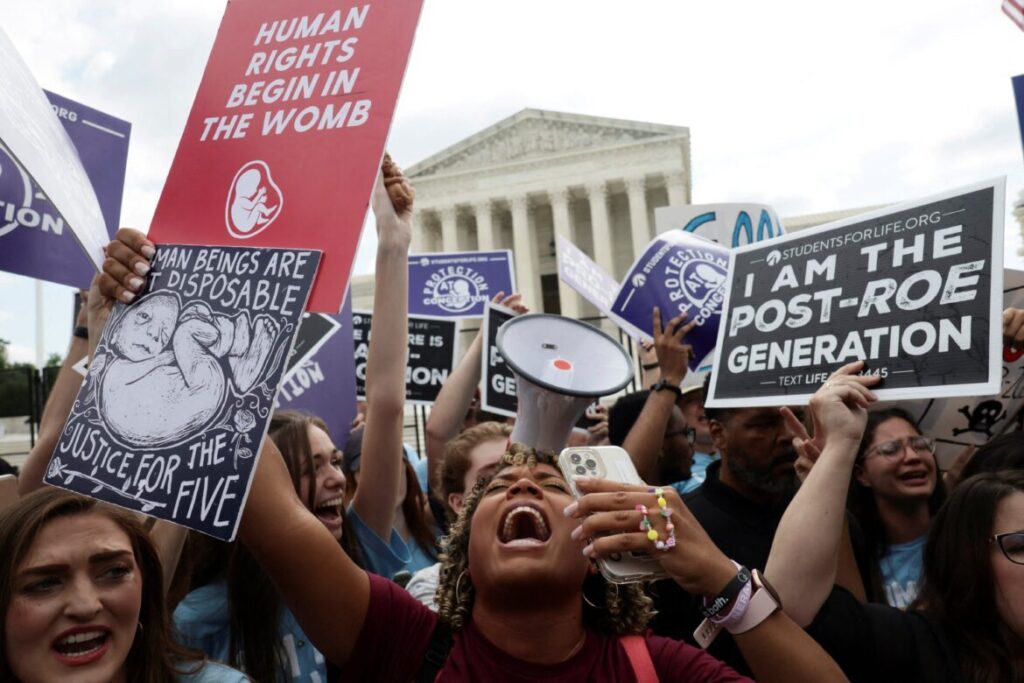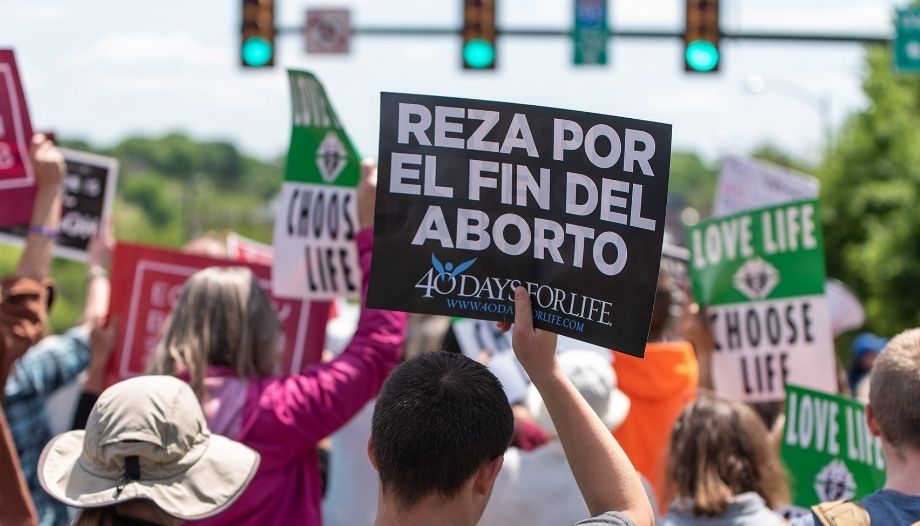Three years after the landmark Dobbs decision by the U.S. Supreme Court overturning the legalization of abortion in all 50 states, each state is still navigating, and different abortion laws are being enacted.
As will be recalled, in its ruling of June 24, 2022 (Dobbs v. Jackson Women's Health Organization), the U.S. Supreme Court overturned Roe v. Wade issued on January 22, 1973, which had legalized abortion in all 50 states. Under Dobbs, the high court held that abortion is not a federal right and passed jurisdiction over abortion to the states.
"While we are celebrating, we are also preparing for the work ahead," said Kelsey Pritchard, director of state public affairs for SBA Pro-Life America, a pro-life advocacy organization.
Increase in the number of abortions
"We recognize how much work lies ahead, knowing the increase in the number of abortions since the Dobbs decision, because we are now at 1.1 million abortions annually," Kelsey Pritchard added.
Indeed, according to the Guttmacher Institute, there were 1,038,100 physician-performed abortions in the United States in 2024, an increase of less than 1 % over 2023.
Important federal role in abortion
"The federal government has an important role to play on the abortion issue," Pritchard said, pointing to the federal funding that Planned Parenthood, the nation's largest abortion provider, continues to receive. In his view, "policymakers in Washington should be encouraged by the pro-life advances made by legislators in their states and equally committed to acting boldly."
Although many states have concluded their regular legislative sessions for this year, Pritchard noted some that have enacted laws that his organization supports. Among them what advocates call a medical education or 'med ed' law, which requires the state to clarify state abortion regulations for health care professionals and the general public.
"These are bills that essentially make it clear that if you are in a pro-life state, under their pro-life law, and you are pregnant, you can still receive emergency care for ectopic pregnancy, miscarriage or any other medical emergency, just as it was before the Dobbs ruling," Pritchard explained. One such bill in Texas was passed by the Legislature, but has not yet been signed by Republican Gov. Greg Abbott, she reported.
Tennessee and Kentucky
In April, Tennessee Republican Gov. Bill Lee approved a bill that supporters say would clarify medical exceptions to the state's ban, but opponents say would further restrict abortion. In March, Kentucky lawmakers overrode Democratic Gov. Andy Beshear's veto of House Bill 90, a similar bill.
Arkansas, which has an abortion ban, also passed legislation in April to ban abortion on the basis of fetal race. That bill was designed to take effect in the event that the general abortion ban was blocked or repealed.
In contrast, other states have taken steps to reduce barriers to abortion. Gov. Jared Polis, D-Colorado, signed a law in April that enshrined abortion access in the state constitution and allowed the use of public funds for abortions.
When asked about his concerns about efforts related to the abortion issue at the state level, Pritchard said, "We can expect more negative ballot measures on abortion in 2026."
Legal protections for abortion
In 2024, voters approved most referendums to expand legal protections for abortion (i.e., guarantee it or strengthen it), in Arizona, Colorado, Montana, Nevada, Missouri, and related measures in Maryland and New York. But Florida, Nebraska and South Dakota rejected such measures, bucking a trend in the 2022 and 2023 elections.
A potential 2026 ballot measure in Virginia would amend the Virginia Constitution to establish a right to reproductive freedom, which it would define as "the right to make and effectuate one's own decisions on all matters relating to pregnancy." In Virginia, amendments to the Commonwealth's constitution must be approved by the General Assembly twice in at least two years, after which the public can vote by referendum.
Working against voting in Virginia
Pritchard said the SBA plans to work against passage of the measure in Virginia.
"There's potential, really, for any abortion voting decision in any state that has a process that allows citizens to pass amendments or laws in that way," he said.
All human life is sacred. Support in the face of poverty
The Catholic Church teaches that all human life is sacred from conception to natural death and, as such, opposes direct abortion. Following the Dobbs decision, U.S. church leaders have reiterated the Church's concern for both mother and child. And they have called for strengthening the support available to those living in poverty or other causes that may push women to have abortions.
Presiding pro-life bishop: greater protection for unborn children
Ahead of Dobbs' anniversary date at the Supreme Court on June 24, the president of pro-life activities for the U.S. Conference of Catholic Bishops is calling on Catholics to advocate for greater protections for unborn children.
Bishop Daniel E. Thomas of Toledo, Ohio, has urged the faithful to "engage their elected representatives on all issues that threaten the gift of human life, particularly the threat of abortion," OSV News reports.
With Dobbs, the tribunal (Supreme Court), ended nearly 50 years "of virtually unlimited, nationwide abortion," Bishop Thomas said in a June 16 statement. "During this Jubilee Year of Hope, we are called to reflect more deeply on the enduring hope that has been won for us through the death and resurrection of our Lord Jesus Christ."
Dobbs paved the way, but the battle for life goes on
"The Dobbs decision not only gave states the freedom to protect unborn children, but also paved the way for pro-life victories nationwide," Bishop Thomas continued. "The federal government is now closer than ever to defunding Planned Parenthood and other organizations whose abortion profiteering harms women and babies."
However, "despite the good that the Dobbs decision accomplished, the battle for life is far from over," he said. "We know that several states have enacted extreme pro-abortion policies, overriding existing pro-life safeguards, and some states leave children vulnerable to abortion even up to birth."
As we face today's challenges, "let us find hope again in this Jubilee Year and be strengthened in our determination to serve the cause of life," the bishop said.
Encouragement for Catholic parishes to accompany women
"May our Catholic parishes continue to welcome, embrace and accompany women facing unexpected or challenging pregnancies through initiatives like Walking with Moms in Need," Bishop Thomas added. "And may we never tire of sharing Christ's message of mercy with all who are suffering after an abortion through ministries like Project Rachel."

————
Kate Scanlon is a national reporter for OSV News covering Washington.
This article is a translation of the original OSV News article which you can view at here y here.
————–











